We’re into the home stretch now, with three of the top four albums of the year. Again, their just arranged alphabetically, since they’re so different from each other it’s impossible to rank them in order. Well, that’s my excuse anyway…
Fish – Feast of Consequences
 Fish’s first album for six years is an ambitious, raw and passionate record that combines many of the best elements of his later work. Lyrically it takes us from the trenches of World War One to the intensely personal, and yet again demonstrates Fish is one of the most underrated lyricists in rock. Musically it’s goes from celtic atmospherics and acoustic balladry to out-and-out rock’n'roll, with a stripped-down production that manages to capture the energy of a live performance. This is the best thing he’s done for a long, long time.
Fish’s first album for six years is an ambitious, raw and passionate record that combines many of the best elements of his later work. Lyrically it takes us from the trenches of World War One to the intensely personal, and yet again demonstrates Fish is one of the most underrated lyricists in rock. Musically it’s goes from celtic atmospherics and acoustic balladry to out-and-out rock’n'roll, with a stripped-down production that manages to capture the energy of a live performance. This is the best thing he’s done for a long, long time.
Goldfrapp – Tales of Us
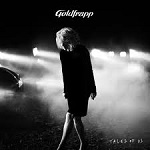 This record is a thing of beauty. It’s a stripped-down acoustic record that has more in common with the likes of Odin Dragonfly than their earlier electro-glam. Arrangements made up largely of acoustic guitar and strings emphasise the beguiling melodies of the songs and beauty of Alison Goldfrapp’s voice, which reminds me strongly of Anne-Marie Helder in places. More mainstream, perhaps, than most of the other records in this list, but it’s still a great record.
This record is a thing of beauty. It’s a stripped-down acoustic record that has more in common with the likes of Odin Dragonfly than their earlier electro-glam. Arrangements made up largely of acoustic guitar and strings emphasise the beguiling melodies of the songs and beauty of Alison Goldfrapp’s voice, which reminds me strongly of Anne-Marie Helder in places. More mainstream, perhaps, than most of the other records in this list, but it’s still a great record.
Steven Wilson – The Raven That Refused To Sing
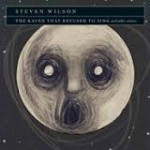 Steven Wilson’s second album to feature the virtuoso band from “Grace for Drowning”, this is a far more focussed and concise record than its sprawling predecessor. It’s still the spirit of early 70s King Crimson reinvented for modern audiences, with a strong jazz flavour, plenty of Mellotron, and space for the soloists to work their magic. There are plenty of people who are still missing Porcupine Tree, but on the evidence of this record his new band is more than a fair trade.
Steven Wilson’s second album to feature the virtuoso band from “Grace for Drowning”, this is a far more focussed and concise record than its sprawling predecessor. It’s still the spirit of early 70s King Crimson reinvented for modern audiences, with a strong jazz flavour, plenty of Mellotron, and space for the soloists to work their magic. There are plenty of people who are still missing Porcupine Tree, but on the evidence of this record his new band is more than a fair trade.
The album of the year will follow in the next post.
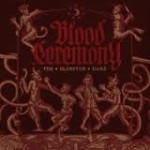 The spooky Canadians’ third album has lightly less stoner metal riffing and more psychedelia, with less emphasis on fuzz-toned guitar and more on sinister Hammond organ. There’s no change in their focus on 70s horror film motifs, with song titles like “Lord Summerisle” and lyrics about crimson altars. With plenty of Alia O’Brien’s flute the end result is a cross between Jethro Tull on acid and Uriah Heep from Hell.
The spooky Canadians’ third album has lightly less stoner metal riffing and more psychedelia, with less emphasis on fuzz-toned guitar and more on sinister Hammond organ. There’s no change in their focus on 70s horror film motifs, with song titles like “Lord Summerisle” and lyrics about crimson altars. With plenty of Alia O’Brien’s flute the end result is a cross between Jethro Tull on acid and Uriah Heep from Hell.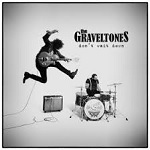 This duo have been kicking up a storm on the live circuit, and their début album manages to capture the power and intensity of the band’s live performances. The combination of raw and dirty blues riffs and powerhouse drums as a lead instrument in the vein of John Bonham or Keith Moon make a glorious rock’n'roll noise. This a record that needs to be played loud for maximum effect.
This duo have been kicking up a storm on the live circuit, and their début album manages to capture the power and intensity of the band’s live performances. The combination of raw and dirty blues riffs and powerhouse drums as a lead instrument in the vein of John Bonham or Keith Moon make a glorious rock’n'roll noise. This a record that needs to be played loud for maximum effect.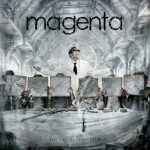 With song titles like “The Lizard King”, “Ladyland Blues” and “Stoned” the subject matter of Magenta’s sixth studio album ought to be obvious here. As with any Magenta record, strong echoes of Yes are never far away, with some very Steve Howe like phrases from guitarist Chris Fry. Similarly, Christina Booth’s sings in similar register to Jon Anderson, although her performances have a lot more emotional depth. One standout song is the beautiful ballad “Pearl”, its less-is-more simplicity contrasting with the more complex epics on the album, with a superbly emotive vocal. As a whole, the album takes a position midway between the dark intensity of “Metamorphosis” and the commercial Magenta-lite of “Chameleon”. As a distillation of a lot of what’s good about Magenta’s music this makes a very good starting point for new listeners.
With song titles like “The Lizard King”, “Ladyland Blues” and “Stoned” the subject matter of Magenta’s sixth studio album ought to be obvious here. As with any Magenta record, strong echoes of Yes are never far away, with some very Steve Howe like phrases from guitarist Chris Fry. Similarly, Christina Booth’s sings in similar register to Jon Anderson, although her performances have a lot more emotional depth. One standout song is the beautiful ballad “Pearl”, its less-is-more simplicity contrasting with the more complex epics on the album, with a superbly emotive vocal. As a whole, the album takes a position midway between the dark intensity of “Metamorphosis” and the commercial Magenta-lite of “Chameleon”. As a distillation of a lot of what’s good about Magenta’s music this makes a very good starting point for new listeners.